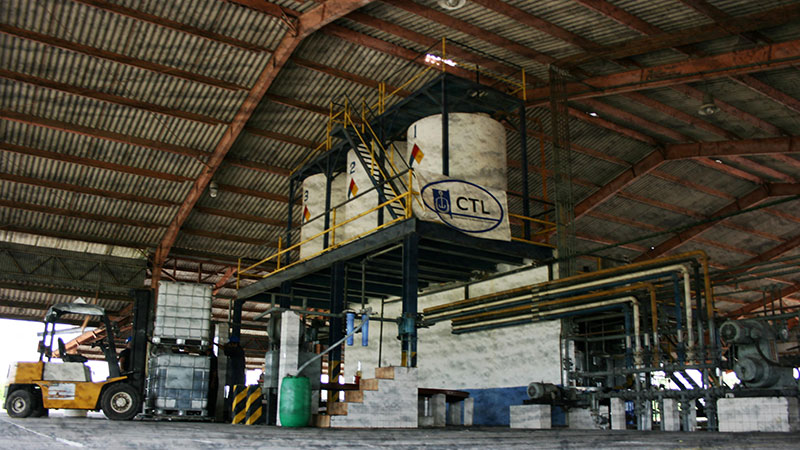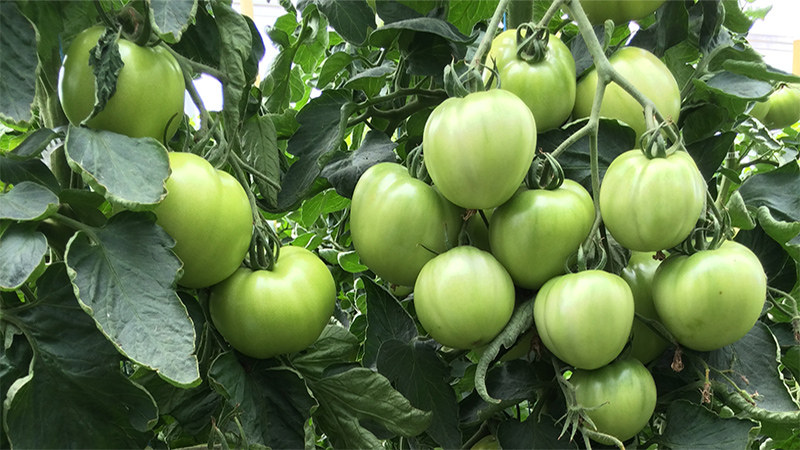How the Crop Protection Industry Is Navigating the New Realities of Global Trade
Editor’s note: The following article is also the main focus of an upcoming webinar titled “Around the World in 45 Minutes: Navigating Disruption and Trade in Agrochemicals” featuring Fanwood Chemical President Jim DeLisi. Jim will discuss critical topics that will directly impact the crop protection chemical supply chain in 2020 and beyond, from COVID-19 and the China-U.S. trade war, to the U.S.-Mexico-Canada Free Trade Agreement and the “New Syngenta.” To learn more about this special CropLife-AgriBusiness Global webinar event, click here.
The global lean toward economic protectionism may hurt the crop protection industry, but new and potential trade agreements among countries can limit the damage as the international trading landscape shifts, says Jim DeLisi, Chief of Fanwood Chemical Inc. in Fanwood, New Jersey.
David Xiaoyu — Business Manager of SPM Biosciences Co. Ltd. in Beijing and strategic director of Precision Ag Alliance, a three-company crop protection partnership — agrees that protectionism isn’t ideal but says the crop protection industry is too well-established to suffer long-term harm.
“The positions of different players are very solid,” Xiaoyu says. “China and India are focusing on production. The multinationals are developing new technology and novel molecules. Distributors are providing the service of agronomy. The entrepreneurs will make the right decisions to face protectionism.”
DeLisi and Xiaoyu recently shared their views on international trade and its impact on crop protection with AgriBusiness GlobalTM, as the coronavirus pandemic continued to threaten production and supply lines of all industries, and add another, unknown factor to the trade equation.

Jim Delisi
DeLisi says it’s impossible to understate U.S. President Donald Trump’s impact on international trade, although he acknowledges that Trump’s actions have brought mixed results. For example, Brazil has replaced the U.S. as the world’s largest grower of soybeans, due to U.S. tariffs on Chinese products. On the other hand, makers of active ingredients in other countries besides China have gained because of those same tariffs.
“(Trump) has radically altered the trading relationship with many of our partners, especially China and India, and he has put the ‘fear of God’ into most if not all of our trading relationships, especially the European Union,” DeLisi says.
Xiaoyu says the U.S. is heading down the wrong protectionist path. He says it’s better for countries to work together and drop trade barriers.
Worldwide Protectionism
DeLisi and Xiaoyu agree that the world is tilted toward protectionism in general, despite developments like the U.S.-China Phase One and United States-Mexico-Canada, or USMCA, trade agreements.
Since taking office, Trump has established several tariffs, including those on goods from the European Union, Canada, and Mexico. The idea was to make American goods more price-competitive with those from other counties. The U.S.-China agreement rolled back only some tariffs, DeLisi says.
- Don’t Miss Our Webinar: Navigating Disruption and Trade in Agrochemicals
DeLisi says U.S. protectionism is harming countries like China and India that rely too heavily on exports, although Xiaoyu says China is increasing its food imports to feed its middle class. India sustained a blow in 2019 when the U.S. removed that country from its Generalized System of Preferences, which allows certain products from less-developed nations to enter the U.S. duty-free.
The U.S. stopped GSP benefits to India, DeLisi says, after the medical-devices and dairy industries complained that it was nearly impossible to export products there. Negotiations between the two countries have failed so far but are ongoing.
“That China was hit so hard by U.S. tariffs cushioned the blow for India, but not completely,” DeLisi says.
In February, Bloomberg Terms of Trade reported that India, despite Prime Minister Narendra Modi’s past promotion of free trade, is becoming more protectionist, partly because Trump placed levies on India’s steel and aluminum.
U.S., China, and India Crop Protection
DeLisi said protectionism and new trade pacts affect all classes of active ingredients and readymade crop protection products.

David Xiaoyu
Xiaoyu says that in 2018, China sold more active ingredients and intermediates to the U.S. than any other country. That changed in 2019, when the U.S. imposed tariffs on Chinese goods, and China retaliated with its own tariffs. American soybean exports to China dropped, and China exported fewer agrochemicals to the U.S. Brazil is becoming the top buyer of Chinese agrochemicals.
The U.S.-China Phase One deal guarantees that China will buy more soybeans from U.S. farmers this year. Xiaoyu says that the U.S. Department of Agriculture projects that American farmers will grow 85 million acres of soybeans in 2020, as opposed to 76.1 million acres in 2019.
“The U.S.-China trade agreement should be a big boost for farmers and ranchers, which should drive an uptick in the purchases of agrochemicals,” DeLisi says.
And since China is a key source of agrochemicals worldwide, China’s soybean herbicide market stands to benefit when it comes to sales of products like glyphosate, 2,4-D, imazapyr, Imazethapyr, and clethodim, Xiaoyu says.
DeLisi says that because of the U.S.-China trade deal, the latest round of China’s retaliatory tariffs — known as the tranche 4 surtax — dropped from the planned 15% to 7.5%. That will spur growth in imports of significant active ingredients, including 2, 4-D, dicamba, atrazine, and metribuzin, from China.
Xiaoyu says that ideally, Chinese agrochemical suppliers and U.S. distributors would split the costs of any remaining tariffs, so they won’t hit farmers.
“Fortunately, China agrochemicals like glyphosate are cheap sterilant herbicides, so the local distribution channel and local farmers can handle the tariff with a reasonable margin across national borders,” Xiaoyu says.
“And most of China’s agrochemical active ingredients are to supply multinationals companies,” Xiaoyu says. “The U.S. farmers will only feel slight price pressure because the multinational crop protection firms will analyze the price tolerance for the farmer.”
As U.S.-China trade enters a new phase, India is maneuvering to become a second significant source of agrochemicals. DeLisi says U.S. companies today are buying more dicamba from India than China, whereas one year ago the opposite was true.
The problem is that the U.S. removal of GSP benefits from India has resulted in U.S. tariffs on Indian readymade products and active ingredients, including glufosinate, 2,4-D, and dicamba, that previously were duty-free. DeLisi says he thought that Trump’s February visit to India would restore GSP benefits, but it didn’t.
“I suspect that they will continue to work toward a conclusion and GSP will be reinstated before the end of the year,” DeLisi says. “The economy of India is hurting, and they need this benefit.”
USMCA, Europe, and Japan
DeLisi says the newly ratified USMCA will amend the rules of origin — which ensure that a commodity listed in a trade agreement is sourced within one of the agreement’s participating countries — between the United States, Canada, and Mexico. Specifically, if an active ingredient is created in one of the three countries, it’s automatically covered under the trade agreement, even if the raw materials were purchased elsewhere. That wasn’t always the case under the North American Free Trade Agreement, which USMCA is replacing.
In addition, USMCA protects agrochemical proprietary data for 10 years instead of NAFTA’s five years and makes it easier to prosecute someone who steals data, DeLisi says. The three countries have also agreed to align risk assessments of agrochemicals and limit testing, so that just one country has to test a product, not all three.
DeLisi says the United States will use USMCA as a template for trade talks with the United Kingdom, the European Union, and Japan.
In Europe, farmers have fought against trade deals, including one recently signed between the EU and Canada, because they fear the agreements will reduce financial aid to farms, Bloomberg Terms of Trade reported in February. The EU is nearing another deal with Mercosur, a South American trade bloc.
Meanwhile, Xiaoyu says, Japanese agrochemical companies are investing in Latin American markets. Ishihara Sangyo Kaisha Ltd. in Osaka and Mitsui Group in Tokyo are opening distribution channels there, for example, and Japanese firms have joined forces to build a state-of-the art agrochemical plant in Brazil.
Coronavirus and Production
DeLisi says coronavirus will significantly impact global trade in the short term, but it’s hard to predict the long-term outlook. He says the virus may cause China to delay some of its commitments under the U.S. trade deal.
Xiaoyu says China is aiming for a balance between controlling coronavirus and keeping society moving. Production of agrochemicals is slowing, partly because of China’s annual spring festival, when most companies stop production, but also due to the virus. After the spring festival, agrochemical production won’t restart immediately, thanks to coronavirus.
Looking ahead, DeLisi says distributors should shop around for lower prices from markets they might not have otherwise considered. Also, international regulators should scrutinize the recent merger of ChemChina and Sinochem under the name Syngenta. He said the new company may monopolize the sale of several products.
DeLisi supports a trade deal between the United States and Brazil, promoted in a recent study by officials from Amcham Brasil, a not-for-profit representing more than 5,000 companies in various industries; Albright Stonebridge Group, an international consulting firm headquartered in Washington, D.C.; WEG, a Brazil-based global consultant in industrial electrical technologies; and S&P Global Ratings, a global provider of credit ratings.
The study says that Brazil keeps high tariffs and other trade barriers in several industries. DeLisi believes a trade agreement would allow the United States to export more active ingredients to Brazil, a big agricultural country.
Xiaoyu says the world must back away from protectionism and embrace more free trade, so that individual countries can focus on what they do best.





